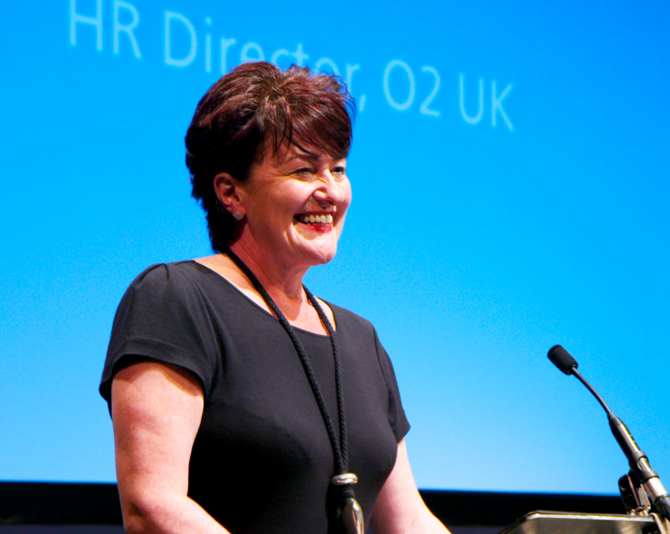‘No excuses for businesses' in driving diversity agenda
Government initiatives are focusing minds on more representative workforces. Yet hard-won gains are at risk. Relocate Global caught up with Ann Pickering, 02’s HR director and diversity champion, to explore where we are now – and what we need to do.

Where do you see the diversity and inclusion (D&I) agenda now? How is it moving on from box-ticking?
“It’s been great to see D&I gradually moving up the business agenda over the past decade – and the effects have been clear.“Reaching Lord Davies’ target of 25 per cent of women on FTSE 100 boards in 2015 was a real milestone for British business, for example, indicating that the UK’s biggest businesses really are beginning to act on certain D&I issues.“But recent research by Berwin Leighton Paisner LLP reveals that in the past year the increase of women on boards has slowed to 0.6 per cent, showing that there is still work to be done to remind businesses of the importance of supporting a D&I agenda – and ensuring it isn’t just seen as a box-ticking exercise.“After all, supporting diversity and inclusion in the workplace isn’t just an obvious moral obligation; it’s rooted in a genuine business sense. We live in an increasingly diverse society, and it’s crucial that workforces reflect businesses’ vibrant and diverse customer bases.“Having a diverse workforce isn’t just about ensuring your business reflects its customers’ values – it’s also about creating happier and more productive teams.”How has this evolution happened? For example, have government and independent reviews helped? What is the impact of skills gaps, demographic trends, employer and individual responses?
“Government initiatives, such as the voluntary target imposed by Lord Davies and the government-backed review he headed, have played an essential role in ensuring D&I remains at the forefront of both public and business consciousness in recent years.“However, recent research by GSK showed female representation on the boards of the FTSE 100 had remained stagnant at 26 per cent since Lord Davies’ target was met last year. This is despite the target being updated in 2015 to having women make up a third of boards of the UK’s 350 largest listed companies by 2020.“It’s absolutely vital that businesses also play an instrumental role in driving this evolution for themselves. Indeed, government initiatives can’t exist in a vacuum. They need to be part of a wider cultural shift. And the truth is, there’s no excuse for businesses not to be driving that change.“In today’s society, any business wishing to attract and retain both customers and talent must be able to demonstrate a real commitment to creating an open and inclusive workplace. This is something today’s workforces have come to expect and demand from their employers, and businesses must match these expectations if they are to future-proof themselves and better serve the customers of the future.”Read more from Relocate on women, diversity and inclusion and global mobility:
International Women’s Day 2017: How to “Be Bold for Change”
Britain trails in league of female start-ups
UK finance firms pledge to boost women in top jobs
How can HR, leaders and individuals support this evolving agenda, perhaps in terms of raising awareness, policy approaches and culture change?
“As the agenda continues to evolve, it is crucial that businesses showcase their commitment to the core principles of D&I at the highest level. Having a board level sponsor, for example, can play an invaluable role in enabling culture change from the top down, helping demonstrate to employees and customers alike the importance D&I holds for the business.“O2’s own board-level sponsor is our COO, Derek McManus. He plays a vital role in spearheading several of the business’ programmes and initiatives, which are aimed at supporting every employee from the moment they join us, right through to board level.“For example, Derek and fellow board members went on a ‘Listening Tour’ as part of our Mental Health Awareness Week in May last year, to remind people across the organisation of the support we offer and to encourage more open conversation on wellbeing.“But culture change can’t just happen from the top down. That’s why at O2 we have built a number of networks – such as our women’s or LGBT network – designed to act as a platform for support and discussion, and to help our employees be the change they want to see.“HR lies at the very heart of this. After all, HR teams are responsible for ensuring D&I features at the top of board level agendas, but also that it is hardwired into the way their organisation does business and what it offers its employees.”For more news and analysis from Re:locate on HR, please follow the link.
Access hundreds of global services and suppliers in our Online Directory
Get access to our free Global Mobility Toolkit

©2025 Re:locate magazine, published by Profile Locations, Spray Hill, Hastings Road, Lamberhurst, Kent TN3 8JB. All rights reserved. This publication (or any part thereof) may not be reproduced in any form without the prior written permission of Profile Locations. Profile Locations accepts no liability for the accuracy of the contents or any opinions expressed herein.






































